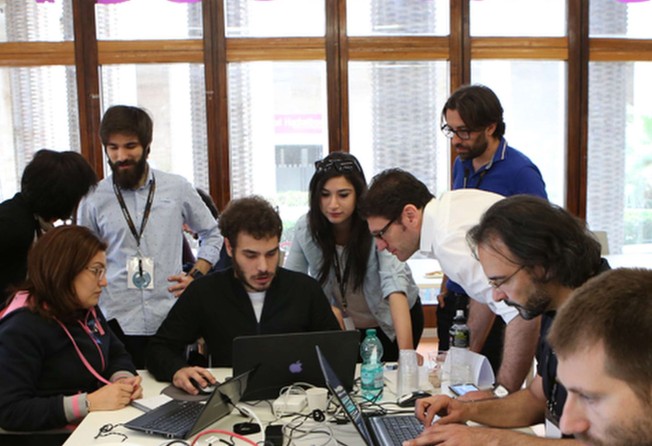
Managers must address multi- generational issues to retain top talent
Workplace dynamics set to change sharply as generation X joins upper management, millennials move up the leadership track and centennials start working

As the high schoolers who constitute Generation Z prepare for their year-end examinations, they may be unaware of the concern they are causing in boardrooms across the globe. CEOs are questioning human resources (HR) departments on their “Gen Z readiness” – how prepared their companies are to start attracting, managing and retaining this new generation that is poised to enter the workforce in a few short years.
What makes the challenge more daunting is that they will be joining three, perhaps even four, other generations in the workforce: Gen Y or millennials, Gen X, Baby Boomers and Traditionalists.

How different are the generations really? And how will companies integrate their differing needs, motivations and work styles? As Generation X settles into the C-suite or upper echelon of management, millennials move up the leadership track, and the centennials get ready to join the workforce, workplace dynamics will change significantly – is the workplace ready?
The INSEAD Emerging Markets Institute, Universum, the MIT Leadership Centre and HEAD Foundation have recently collaborated on a study covering over 18,000 people across 19 countries, from the three younger generations, Gen Z (students born between 1996 to 2002), Gen Y (students and professionals born between 1984 to 1996) and Gen X (professionals born between 1965 and 1983) with the aim to understand whether generational differences are real and the impact they will have.
Like all other aspects of diversity, generational diversity will bring different ideas and perspectives into the office. Companies can recognise this and prepare to take advantage or ignore the generational tension completely and risk being unpleasantly surprised.
The study revealed some differences but also several interesting similarities across the three generations. One work related fear that was common to all three generations, but especially the younger two, was the fear of not finding a job that “fits” with their personalities. The need to align between their own ideals and those of the employer was important to all of them. So, it’s not just the millennials who look for purpose at work, even their more jaded colleagues who’ve been working for as much as two decades want this alignment.
In Singapore, for instance, this fear was expressed as their main one by over 60 per cent of the respondents across generations. They also worried about getting “stuck” – having no developmental opportunities to let them grow. One fear that did show generational diversity was that of their optimism for their future work – in most countries, the millennials were much more hopeful than the Gen Xers who’ve labelled them the Peter Pan generation.

Entrepreneurial aspirations trumped steady careers in large organisations almost across the globe and across the generations. In China, 49 per cent of millennials expressed the desire to start their own businesses. In the other Asian giant, India, this percentage was at 41 per cent. With the rise of the gig economy and the uberisation of services, the traditional definitions of professional employment are changing anyway.
In the war for talent, companies have to compete not just with their industrial rivals but also with the entrepreneurial aspirations and need for flexibility of their employees. Organisations that get this are changing focus from trying to hire and retain everyone in similar full-time permanent roles. They are moving instead towards a menu of engagement options for top talent. This is especially true for the highly sought-after digital talent.
Employee turnover is an opportunity to evaluate roles and organisational structures and introduce flexible options wherever possible. For those that they do get on the rolls, it’s important to provide opportunities for intrapreneurship and agile team structures to provide that all important “fit” between employee aspirations and organisational characteristics.
One work related fear that was common to all three generations, but especially the younger two, was the fear of not finding a job that “fits” with their personalities
Interestingly, the tug of entrepreneurship seems to be relatively lower for women who are much more likely to want to work for a global company than their male counterparts, one more reason for larger companies to continue their efforts to recruit and develop female professionals.
However, when we looked into what the female respondents said about the challenges that they face and their fears about their professional lives, geographical diversity became much more evident. Women worry about different things in different countries, and would accordingly appreciate geographically targeted organisational initiatives that are customised to their needs.
In China, Gen Y women professionals are most concerned about not finding the developmental opportunities they need to progress in their careers. Gen X women professionals worry more about not being able to enjoy their retirement. Both generations fear not finding an alignment between their personalities and the jobs on offer. The millennials also worried about not being seen as valuable to the organisation.
In the US, millennials worried most about not realising their career goals. In Sweden, they were most concerned about having to work too much.
Companies that can understand both the shared beliefs and the gaps across the generations will make better decisions about training, leadership development and even culture-building. It’s important across generations that employees know what an organisation stands for, believe that it is worth working for and know that their preferences and motivations are understood and valued by their employers.
Henrik Bresman is INSEAD’s associate professor of organisational behaviour and academic director of the INSEAD Global Leadership Centre; Vinika Rao is executive director of the INSEAD Emerging Markets Institute